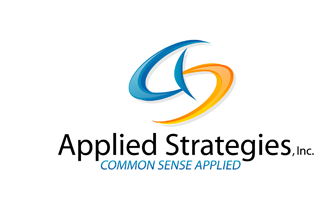|
|
Instead of a continuous embrace, it seems many firms focus only periodically on managing cash flow (time entered, time billed, receivables collected), and usually it's when they've found themselves in a hole!
It doesn’t have to be that way. In fact, those firm environments where partners have adopted continuous accountability are far less stressful and see a transparent relationship between their cash flow and acting as responsible partners.
A Partner Accountability System for the realization and management of recording time, the value of unbilled time, and Accounts Receivable can look like the following:
A 100-Point Partner - a valuable resource for fees and financial issues:
- obtains retainers and advance payments on a consistent basis to reduce working capital requirements,
- collects above 95% of standard rates overall,
- has only 10% of unbilled time, and 5% of receivables over 90 days outstanding,
- maintains time records contemporaneously and submits daily, and
- returns pre-bills to Accounting within 48 hours of receipt each month.
An 80-Point Partner - an effective and efficient manager of fiscal matters:
- discusses the economic arrangement with clients and establishes budgets and milestones - before undertaking a matter,
- averages 90% to 95% of standard rates,
- has only 20% of unbilled time and 15% of receivables over 90 days outstanding,
- maintains time records contemporaneously and submits with a one-day lag, and
- returns pre-bills to Accounting within 72 hours of receipt each month.
A 60-Point Partner - a competent fiscal manager:
- when pressed by clients, establishes a budget and occasionally provide updates,
- averages 85% to 90% of standard rates,
- has only 30% of unbilled time and 25% of receivables over 90 days outstanding,
- maintains time records contemporaneously with a two-day lag except at the end of the month, and
- returns pre-bills to Accounting within 72 hours of receipt each month.
A 40-Point Partner - a struggling fiscal manager:
- has realization challenges and client payment issues due to a lack of consistent retainers, budgets and payment arrangements, and poor communication with clients,
- averages 80% to 85% of standard rates,
- has 40% of unbilled time and 35% of receivables over 90 days outstanding,
- submits time weekly and may or may not be maintained contemporaneously, and
- after being asked, returns pre-bills to Accounting promptly.
A 20-Point Partner - an inadequate/poor fiscal manager:
- never discusses fee arrangements or budgets with clients, resulting in "fee sticker shock,"
- has realization below 80% of standard rates,
- has over 50% of unbilled time and 45% of receivables over 90 days outstanding,
- does not maintain time contemporaneously, and
- the Accounting Department regularly chases them for time submission and vetted pre-bills.
Flexible Nature
This sample is a 100-point system, however, it can be adjusted to whatever works best for the firm. For example, you may:
- Adapt the realization rate (percentage of standard) to where you want to start and adjust it annually or bi-annually depending on the firm's goals.
- Amend the percentage of unbilled WIP and Accounts Receivables (i.e. over 90 days outstanding) to meet the firm's specific goals each year.
- Use this Partner Accountability System as an add-on to the existing compensation system used to allocate bonuses, or insert it into either the productivity or subjective aspects of the existing compensation system.
Tracking
These are not complex stats to track and could be published monthly or quarterly to reinforce the appropriate behavior throughout the year (not just around compensation setting time).
The Process
- The firm allocates some amount of the net income to a pool (best done on a quarterly basis).
- The firm calculates the total number of points awarded that quarter to partners.
- The firm calculates a point value by dividing the pool by the sum of points awarded to the partners.
- Each partner is then paid a sum of their points by the point value (these funds are simply a further allocation of the net income and are taxable).
Benefits
- The partners who manage their practice in a fiscally prudent manner are rewarded, thereby encouraging this ongoing behaviour.
- There is flexibility on how much money is assigned to a point. This pool should be deducted before any income is allocated.
- There is transparency on how the points are calculated as well as the behavior you're seeking to reward.
- There will be a favorable impact on cash flow, resulting in a faster payout of cash to the partners.
- The bank debt will be reduced.
- It will attract potential lateral hires by the more robust financial ratios offered by the firm, and
- This system rewards partners who act as owners.
Conclusion
The need for partner accountability has never been higher, both financially and culturally. Firms that have accountability as a cornerstone enjoy a healthier culture.
As Brené Brown said,
"When we fail to set boundaries and hold people accountable, we feel used and mistreated. This is why we sometimes attack who they are, which is far more hurtful than addressing a behavior or a choice."
Who is Stephen Mabey?
Stephen Mabey is a CPA, CA, and the Managing Director of Applied Strategies, Inc. His credentials include:
- Fellow of the College of Law Practice Management (one of 19 Canadians - 276 Fellows),
- Author of Leading and Managing a Sustainable Law Firm: Tactics and Strategies for a Rapidly Changing Profession, and Key Performance Indicators An Introductory Guide (Amazon),
- Over 25 years in a senior management role with Stewart McKelvey, a 220-lawyer, six-office Atlantic Canadian law firm,
- Over 15 years experience providing advice and counsel to small to mid-size law firms on a broad range of issues,
- A panelist and facilitator of the Managing Partner Information Exchange ("MPIE") at the annual Managing Partner Forum Leadership Conference held in Atlanta, Georgia, each May, and
- has a growing mailing list that circulates articles, directly and indirectly, impacting law firms and offers free mini-benchmarking surveys.
Stephen has advised law firms for over 15 years on a wide range of issues, including - strategic action planning, leadership, understudy (succession) planning, compensation (Partner and Associate), organizational structures and partnership arrangements, governance, business development, capitalization of partnerships, partnership agreements, lawyer and staff engagement, marketing, key performance indicators, competitive intelligence, finance, mergers, and practice transitions.
The accurate perspective on what we do for our clients comes not from what we say we are about but from what they say about us. His clients use phrases to describe him, such as:
- "His advice and the solutions were tailored to our unique needs and business context";
- "It's as though he "got us" right away and didn't waste our time (or our money) on the unnecessary stuff";
- "Stephen was invaluable in helping us steer through a difficult time of transition within our firm";
- "He has helped our firm immensely over the past number of years, and we are most appreciative of his contribution; it's like having a CEO on retainer";
- "Steve possesses that rare ability to bluntly deliver tough and practical business advice while maintaining his personal warmth and good humor";
- "Stephen has been invaluable in assisting with and guiding us through our strategic planning process. His broad knowledge and experience, combined with his engaging and inclusive facilitation style, promotes thoughtful and productive discussion among our partners "and
- "Steve always pushes the leading edge in terms of new ideas and new ways to carry on business."
Stephen can be reached by email – at smabey@appliedstrategies.ca or by phone at 902.499.3895.


